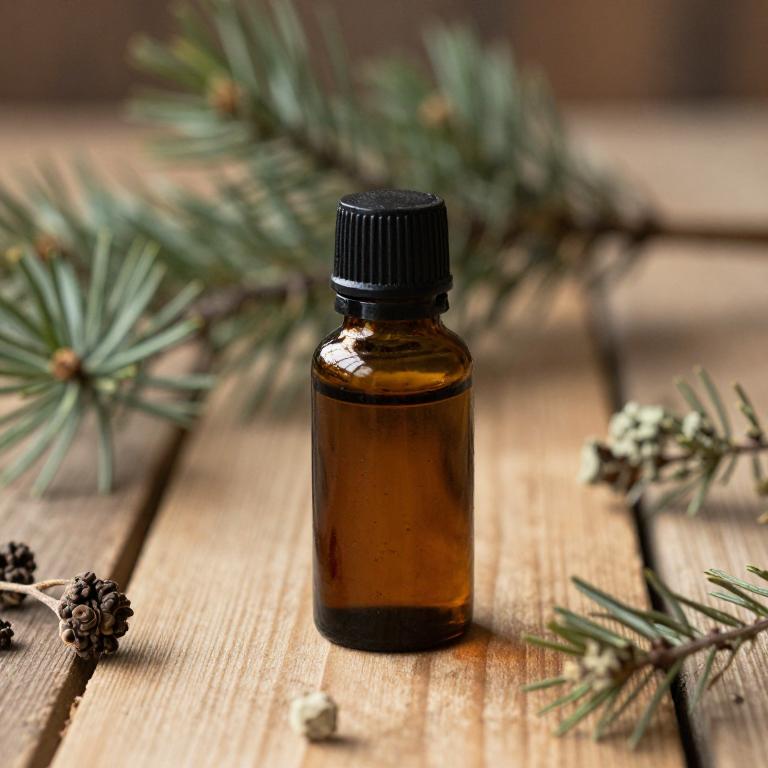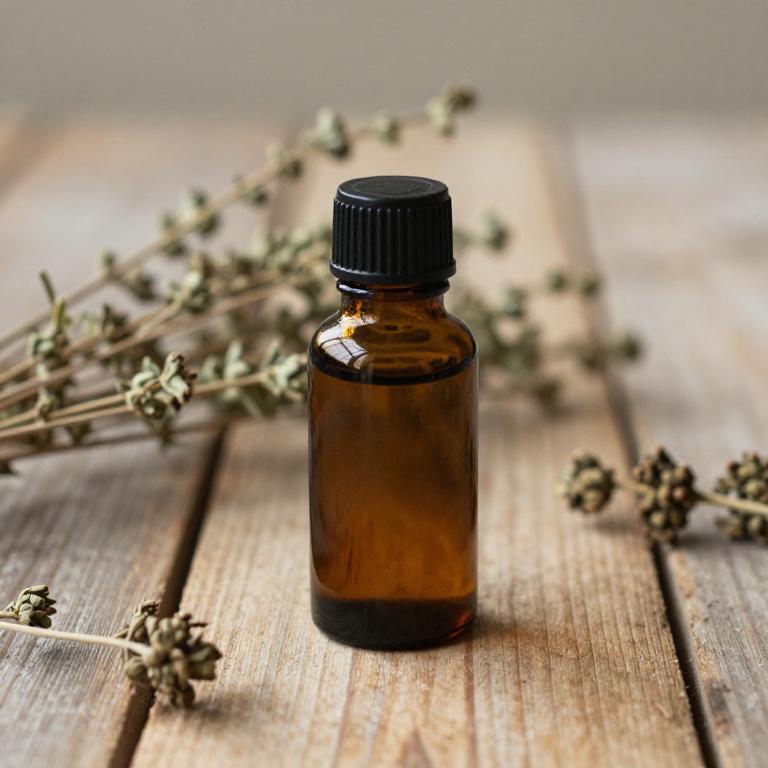10 Best Herbal Essential Oils For Laryngitis

Herbal essential oils such as eucalyptus, peppermint, and thyme are often used to alleviate symptoms of laryngitis due to their anti-inflammatory and antimicrobial properties.
These oils can help reduce throat irritation and ease breathing by promoting clearer airways and reducing mucus buildup. When used in steam inhalation or diluted in a carrier oil for topical application, they may provide relief from coughing and soreness. However, it is important to consult a healthcare professional before using essential oils, especially for children or individuals with respiratory conditions.
While they can be a complementary therapy, they should not replace medical treatment for severe or persistent laryngitis.
Table of Contents
- 1. Eucalyptus (Eucalyptus globulus)
- 2. Thyme (Thymus vulgaris)
- 3. Rosemary (Rosmarinus officinalis)
- 4. Scots pine (Pinus sylvestris)
- 5. Melaleuca (Melaleuca alternifolia)
- 6. Ceylon cinnamon (Cinnamomum zeylanicum)
- 7. English lavender (Lavandula angustifolia)
- 8. Ginger (Zingiber officinale)
- 9. Oregano (Origanum vulgare)
- 10. Fennel (Foeniculum vulgare)
1. Eucalyptus (Eucalyptus globulus)

Eucalyptus globulus, commonly known as Australian tea tree or blue gum, is a widely used source of essential oil known for its potent antimicrobial and anti-inflammatory properties.
This essential oil is often employed in the treatment of laryngitis due to its ability to reduce throat irritation and soothe inflamed tissues. When diluted properly, eucalyptus globulus essential oil can be used in steam inhalations or topical applications to alleviate symptoms such as coughing and soreness. Its active components, including cineole and terpenoids, contribute to its effectiveness in reducing mucus buildup and improving respiratory function.
However, it is important to consult a healthcare professional before using essential oils, especially for individuals with sensitive skin or underlying health conditions.
2. Thyme (Thymus vulgaris)

Thymus vulgaris, commonly known as thyme, is a popular herb used in aromatherapy and herbal medicine for its potent essential oils, which are known for their antimicrobial and anti-inflammatory properties.
The essential oils derived from thyme, particularly containing thymol, are often used to support respiratory health and can be beneficial in alleviating symptoms of laryngitis, such as sore throat and hoarseness. When used in diffusers or applied topically with a carrier oil, thyme essential oil may help reduce inflammation and combat infections that contribute to laryngitis. However, it is important to use thyme essential oil with caution, as it can be irritating to the skin and may cause allergic reactions in some individuals.
Always consult with a healthcare professional before using essential oils for therapeutic purposes, especially for conditions like laryngitis.
3. Rosemary (Rosmarinus officinalis)

Rosmarinus officinalis, commonly known as rosemary, is a herb whose essential oil has been traditionally used for its therapeutic properties.
The essential oil of rosemary contains compounds such as cineole, camphor, and borneol, which possess anti-inflammatory and antiseptic qualities. These properties make it potentially beneficial for alleviating symptoms of laryngitis, such as sore throat and inflammation of the vocal cords. When used in aromatherapy or diluted for topical application, rosemary essential oil may help reduce irritation and promote healing in the respiratory tract.
However, it is important to consult a healthcare professional before using essential oils, especially for individuals with existing medical conditions or allergies.
4. Scots pine (Pinus sylvestris)

Pinus sylvestris, commonly known as Scots pine, produces an essential oil that has been traditionally used for its respiratory benefits, including relief from laryngitis.
The oil contains compounds such as alpha-pinene and beta-pinene, which possess anti-inflammatory and antimicrobial properties that can help reduce throat irritation and infection. When used in aromatherapy or as a steam inhalation, the essential oil can soothe inflamed vocal cords and ease breathing difficulties associated with laryngitis. It is often diluted with a carrier oil before application to avoid skin irritation.
While it may provide symptomatic relief, it is recommended to consult a healthcare professional for persistent or severe cases of laryngitis.
5. Melaleuca (Melaleuca alternifolia)

Melaleuca alternifolia, commonly known as tea tree oil, is a potent antimicrobial essential oil derived from the leaves of the Melaleuca alternifolia plant.
While it is widely used for skin infections and respiratory conditions, its application for laryngitis involves leveraging its anti-inflammatory and antiseptic properties to reduce throat irritation and combat potential microbial infections. When diluted properly, tea tree oil can be used in inhalation therapy or as a topical application to soothe sore throats and ease breathing difficulties associated with laryngitis. However, it is important to note that essential oils should never be ingested and must be used with caution to avoid skin irritation or allergic reactions.
As with any complementary treatment, it is advisable to consult a healthcare professional before using tea tree oil for laryngitis.
6. Ceylon cinnamon (Cinnamomum zeylanicum)

Cinnamomum zeylanicum, commonly known as cinnamon bark, contains essential oils that have been traditionally used for their antimicrobial and anti-inflammatory properties.
These oils, particularly rich in cinnamaldehyde and eugenol, may help reduce inflammation and soothe irritated throat tissues, making them potentially beneficial for individuals with laryngitis. When used in steam inhalation or diluted in a carrier oil for topical application, cinnamon essential oil can provide relief from coughing and soreness associated with laryngitis. However, it is important to use these oils with caution, as they can be irritating if not properly diluted.
Always consult a healthcare professional before using essential oils for therapeutic purposes, especially for conditions like laryngitis.
7. English lavender (Lavandula angustifolia)

Lavandula angustifolia, commonly known as English lavender, is a popular herb used in aromatherapy for its calming and anti-inflammatory properties.
Its essential oil contains compounds like linalool and lavandine, which have been shown to reduce inflammation and soothe irritated tissues. When used for laryngitis, lavender essential oil can help alleviate symptoms such as sore throat and hoarseness by promoting relaxation and reducing mucus production. It is often diluted with a carrier oil and applied topically or used in steam inhalation to provide relief.
However, it is important to consult a healthcare professional before using essential oils, especially for prolonged or severe cases of laryngitis.
8. Ginger (Zingiber officinale)

Zingiber officinale, commonly known as ginger, is a popular herbal plant whose essential oil has been traditionally used for its therapeutic properties.
The essential oil of ginger contains bioactive compounds such as gingerol and shogaol, which exhibit anti-inflammatory and antioxidant effects. These properties make it potentially beneficial in alleviating symptoms of laryngitis, such as inflammation and irritation of the throat. When used in aromatherapy or diluted topical applications, ginger essential oil may help reduce swelling and soothe the respiratory tract.
However, it is important to consult a healthcare professional before using essential oils, especially for conditions like laryngitis, to ensure safe and effective treatment.
9. Oregano (Origanum vulgare)

Oreganum vulgare, commonly known as oregano, is a herb widely used in traditional medicine for its potent essential oils, which contain compounds like carvacrol and thymol.
These essential oils have demonstrated antimicrobial and anti-inflammatory properties, making them potentially beneficial in the treatment of laryngitis, an inflammatory condition of the larynx. When diluted and applied through inhalation or topical use, oregano essential oil may help reduce throat irritation and ease respiratory symptoms associated with laryngitis. However, due to its strong potency, it should always be diluted with a carrier oil before use to prevent skin irritation.
While some studies suggest its efficacy, further research is needed to fully understand its therapeutic applications for laryngitis.
10. Fennel (Foeniculum vulgare)

Foeniculum vulgare, commonly known as fennel, is a herb whose essential oil has been traditionally used for its therapeutic properties, including its potential benefits in treating laryngitis.
The essential oil of fennel contains compounds such as anethole and limonene, which have anti-inflammatory and antispasmodic effects that may help reduce swelling and irritation in the throat. When used aromatically or topically, fennel essential oil can help soothe coughing and ease breathing by calming the respiratory tract. It is often diluted with a carrier oil before application to avoid skin irritation.
While fennel essential oil may offer supportive relief for laryngitis, it should be used as part of a comprehensive treatment plan under the guidance of a healthcare professional.